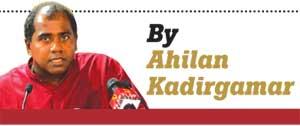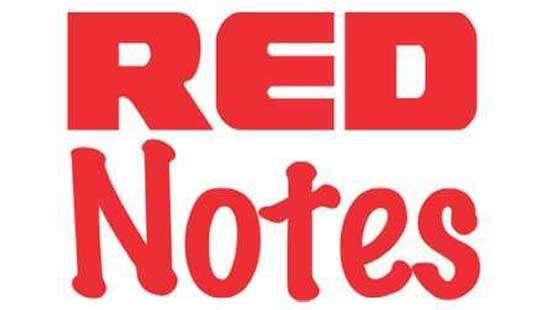16 Jan 2023 - {{hitsCtrl.values.hits}}

Sri Lanka has drowned deep into the crisis with little hope of resolving its debt ridden status
Over the last year, Sri Lanka was suffocating under a debt crisis and a so-called IMF solution, with little bargaining power to negotiate with the powerful creditors and the IMF to find a sustainable path out of the crisis. Indeed, Sri Lanka’s economic establishment has no vision for an alternative future. Not even an attempt to challenge the dictates of creditors and the IMF. They have all but surrendered to the austerity measures with devastating consequences for the working people.
power to negotiate with the powerful creditors and the IMF to find a sustainable path out of the crisis. Indeed, Sri Lanka’s economic establishment has no vision for an alternative future. Not even an attempt to challenge the dictates of creditors and the IMF. They have all but surrendered to the austerity measures with devastating consequences for the working people.
Last week, a statement signed by 182 international economists and academics, put Sri Lankan intellectuals to shame. Over the last few decades, not just economic policymakers, but also academics and commentators in Sri Lanka have succumbed to the neoliberal project of finance capital and free markets. The younger generation of economists have been indoctrinated in neo-classical economics reifying free markets and rational choice theory. For others, lucrative careers with international institutions and consultancies meant uncritically following the orthodox analysis and the dictates of the IMF and the World Bank. The intellectual consequences have been damning, where the economic development discourse that dominates Sri Lanka has been complicit in the country going from one crisis to another with no alternatives to consider.
The statement by international scholars, including those at the forefront of challenging the neoliberal orthodoxy and engaged with alternatives, particularly, Jayati Ghosh, Dani Rodrik, Thomas Piketty, Jomo Sundaram, Robert Wade, C. P. Chandrasekhar, Ha-Joon Chang,Jean Dreze, Charles Abugre, Utsa Patnaik, Prabhat Patnaik, Ben Fine and many others, is a welcome intervention of solidarity as Sri Lanka drowns deeper into the crisis with little hope of resolving the debt crisis. Indeed, the statement has punctured the bubble of cookie cutter economic analysis in Sri Lanka. Over the last year, the Sri Lankan elite have claimed that an IMF agreement along with its demands for unrealistic primary budget surplus amounting to severe austerity and rapid restructuring of external debt without considering the fact that it is the working people who would bear the brunt of the consequences. The international scholars, however, have put the ball squarely in the IMF and creditors quarters, claiming there needs to be extensive debt cancellation.
The Colombo establishment, including the neoliberal think tanks and the Government’s advisors have already begun their denunciations. However, they stand naked with the “emperor’s new clothes”, and they will try to cover themselves with the same old discourse of corruption as the cause of the debt crisis and the new rhetoric of a “Chinese debt trap”, taking the cue from Western powers and their geopolitical interests. The solutions they project are more of the same, a return to the economic policies of the neoliberal decades, and more debt from the same financial sources, including the international capital markets.
 The underlying issues I argue are twofold. First, as Sri Lanka deals with the debt crisis, we have to be clear about the class question in relation to finance capital; who is going to take the hit for the loans without returns that were defaulted. Is it the working people or finance capital along with those who gained from it over the decades? Indeed, the primary culprit of the debt crisis is finance capital in its many emanations, including extractive commercial lending from the capital markets, finance from international institutions with their neoliberal development agenda, and bilateral loans linked to their geopolitical interests. Second, the current debt crisis is affecting many countries in the Global South, and the solutions imposed on Sri Lanka and for that matter our struggle for an alternative economic trajectory are going to be determined by the changing global order. In other words, the crisis we are in as with so many other countries, is a consequence of neoliberal globalisation, however, the Sri Lankan elite should be held responsible with fire for both their commissions in the past and the continuing complicity with this unjust and unravelling global order.
The underlying issues I argue are twofold. First, as Sri Lanka deals with the debt crisis, we have to be clear about the class question in relation to finance capital; who is going to take the hit for the loans without returns that were defaulted. Is it the working people or finance capital along with those who gained from it over the decades? Indeed, the primary culprit of the debt crisis is finance capital in its many emanations, including extractive commercial lending from the capital markets, finance from international institutions with their neoliberal development agenda, and bilateral loans linked to their geopolitical interests. Second, the current debt crisis is affecting many countries in the Global South, and the solutions imposed on Sri Lanka and for that matter our struggle for an alternative economic trajectory are going to be determined by the changing global order. In other words, the crisis we are in as with so many other countries, is a consequence of neoliberal globalisation, however, the Sri Lankan elite should be held responsible with fire for both their commissions in the past and the continuing complicity with this unjust and unravelling global order.
In appreciating the statement by international scholars that speaks for itself and to prepare you for the twisted denunciations that are emerging from Sri Lanka’s neoliberal quarters, I am providing the statement below.
Excerpts of the Statement by Academics
Sri Lanka, along with many other low- and middle-income countries, has experienced a series of financial shocks due to both external and internal factors. Global forces have caused food and energy import costs to soar and interest rates to rise, even as the currency has devalued significantly. These shocks, along with a history of policy mismanagement—and specifically the deregulation and openness that encouraged irresponsible borrowing, enabled illicit financial flows out of the country and assisted political corruption—have intensified external debt and balance of payments crises.
Over the last decade of liquidity expansion and low interest rates in the world economy, private lenders provided loans to low- and middle-income countries, at higher interest rates than for advanced countries.
Private creditors own almost 40% of Sri Lanka’s external debt stock, mostly in the form of International Sovereign Bonds (ISBs), but higher interest rates mean that they receive over 50% of external debt payments. Such lenders charged a premium to lend to Sri Lanka to cover their risks, which accrued them massive profits and contributed to Sri Lanka’s first ever default in April 2022. Lenders who benefited from higher returns because of the “risk premium” must be willing to take the consequences of that risk. Indeed, ISBs are now trading at significantly lower prices in the secondary market. In this context, giving private bondholders an upper hand relative to sovereign debtors in the Paris Club and the IMF’s required debt negotiations violates the basic principles of natural justice.
In addition, the lack of transparency of the debt negotiation process and accountability of the holders of ISBs underscores the concern that risky lending to corrupt politicians (leading to what is now recognised as “odious debt”) was a significant element in generating the current debt crisis. Apart from revealing the identity of ISB holders, it is also important to disclose how ISBs were deployed, and the use of those funds.
Debt negotiations in Sri Lanka are now at a crucial stage. All lenders—bilateral, multilateral, and private—must share the burden of restructuring, with assurance of additional financing in the near term. However, Sri Lanka on its own cannot ensure this; it requires much greater international support. Instead of geopolitical manoeuvring, all of Sri Lanka’s creditors must ensure debt cancellation sufficient to provide a way out of the current crisis.
The role of multilateral organisations, particularly the international financial institutions (IFIs), such as the IMF and the World Bank, is also significant. They were founded to assist sovereign nations, particularly in contexts in which financial markets would not deliver, to ensure financial stability and prevent or reduce the impact of financial crises, and to provide resources for crucial investments required to meet social and developmental needs.
The IFIs are not currently living up to these responsibilities, at a time when they are most urgently required. In Sri Lanka they encouraged the very policies of more open capital accounts and deregulation that have led to the current crisis. They have been slow to respond to the crisis, and are apparently requiring onerous policy and fiscal conditionalities, such as moving to a primary fiscal surplus in a very short time, even as the economy continues to plunge.
The implications are already evident in the recent Budget of the Sri Lankan government, which has unrealistic revenue assumptions that are unlikely to be met. Revenue shortfalls would then necessitate further “austerity” and likely cuts in essential public spending. The Budget also proposes public asset stripping and privatization of strategic lands, marine resources, energy, transport and telecom infrastructure and public enterprises. These policies will harm the most vulnerable groups in Sri Lanka, exacerbate poverty and inequality, and lead to further economic decline. Instead the focus should be on legal and regulatory changes to stem the illicit outflow of capital through transfer pricing and trade mis-invoicing over the past 15 years, which is estimated to be far more than the aggregate foreign debt of Sri Lanka, and on taxation of wealth and consumption of the super-rich.
The Sri Lankan case will provide an important indicator of whether the world—and the international financial system in particular—is equipped to deal with the increasingly urgent questions of sovereign debt relief and sustainability; and to ensure a modicum of justice in international debt negotiations. It is therefore crucial not only for the people of Sri Lanka, but to restore any faith in a multilateral system that is already under fire for its lack of legitimacy and basic viability.
09 Jan 2025 49 minute ago
09 Jan 2025 2 hours ago
09 Jan 2025 3 hours ago
09 Jan 2025 3 hours ago
09 Jan 2025 3 hours ago